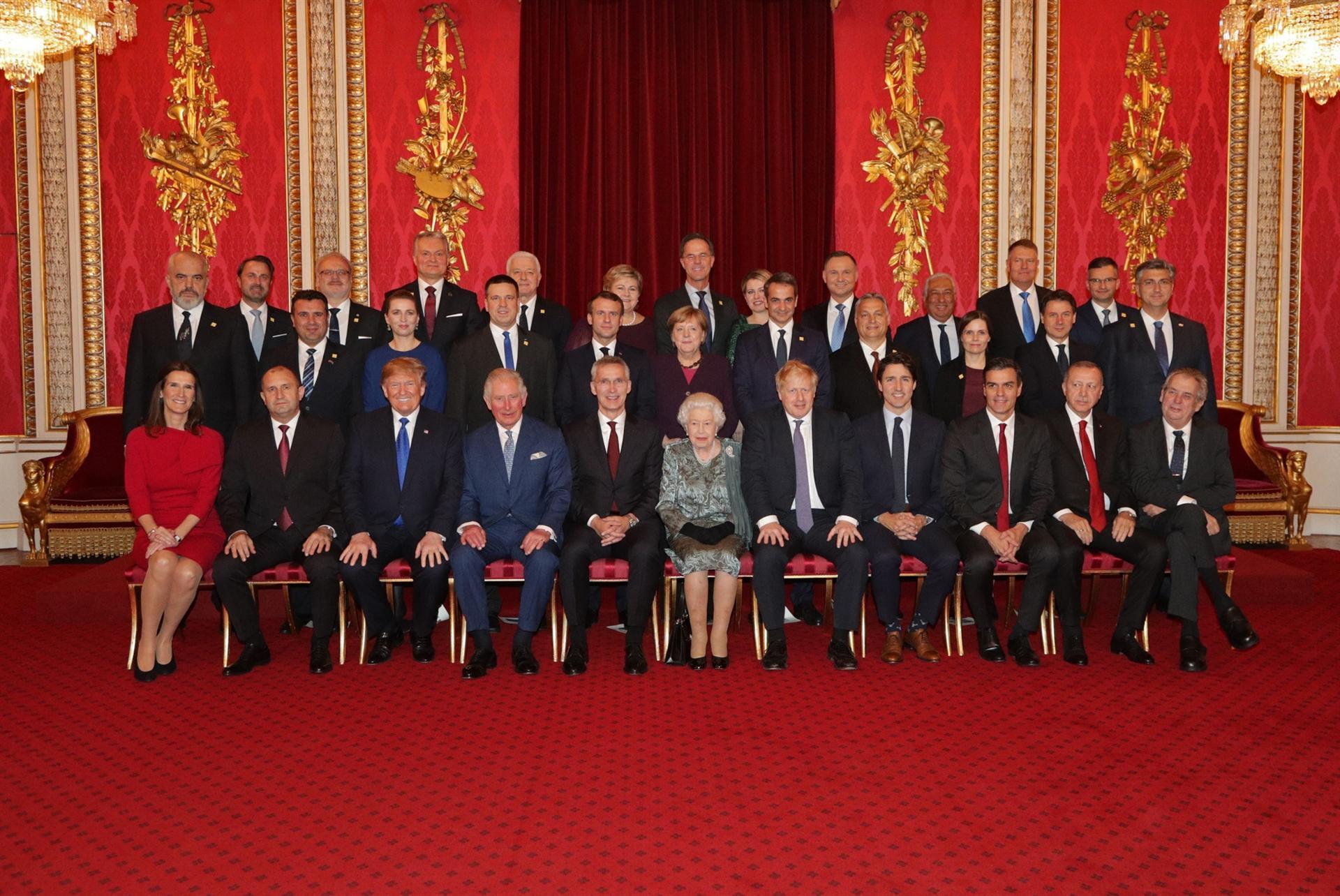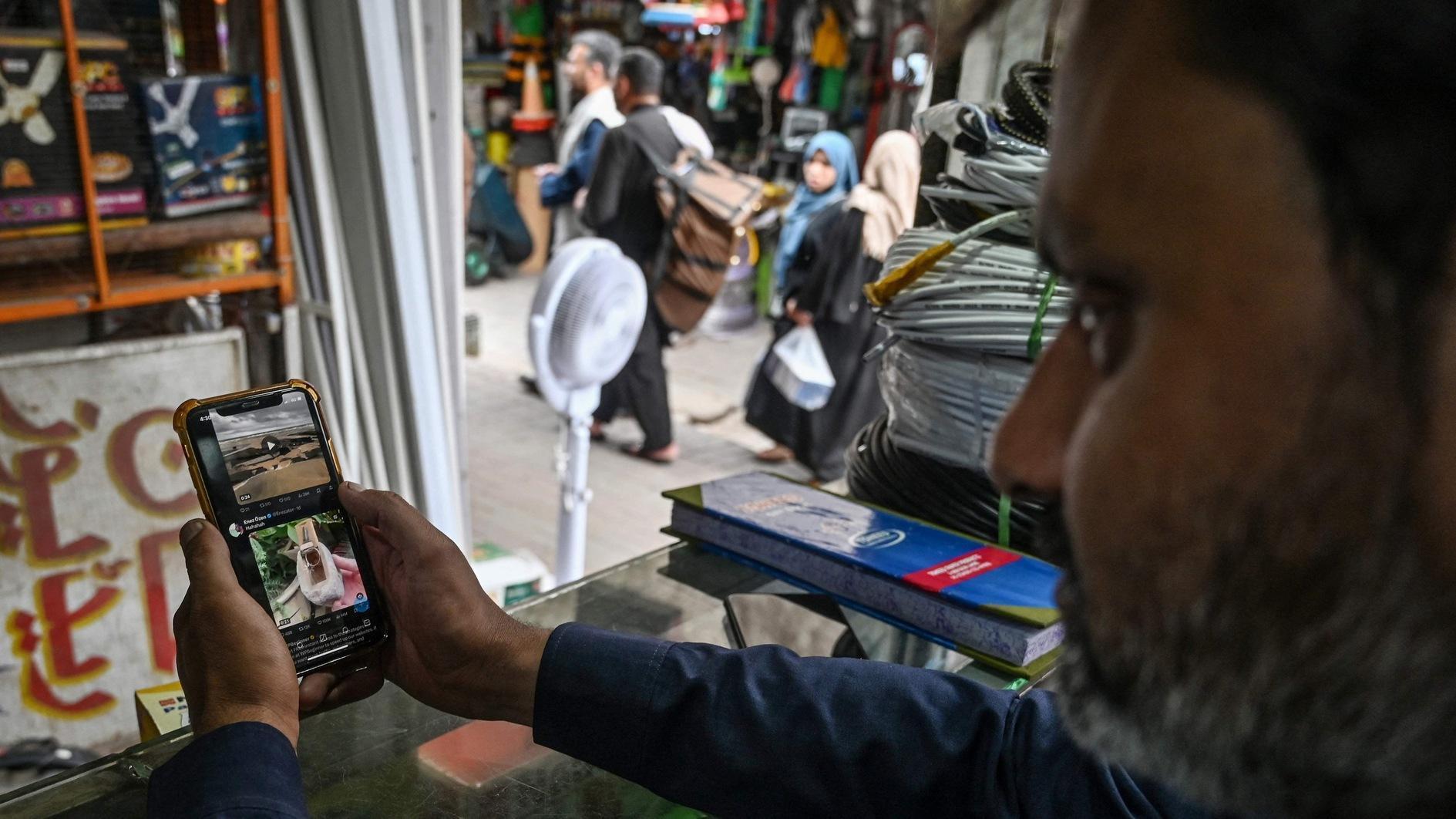NATO leaders meet amid rows
ANKARA

The NATO summit on Dec. 3 started with clashes between U.S. President Donald Trump and his French counterpart Emmanuel Macron.
NATO leaders on Dec. 3 met for a two-day summit in London, marking the 70th anniversary of the alliance.
Last year, the Western allies' get-together was derailed by Trump's demand for greater European defence spending, but 2019's provocateur was Macron.
The French president has called for a renewed strategic dialogue with Moscow and demanded that Turkey explain itself over its anti-terror "Operation Peace Spring" into northeastern Syria and its purchase of the Russian S-400 air defense system.
The leaders met in various groups in London on Dec. 3 before having dinner with Queen Elizabeth II in Buckingham Palace, but Macron refused to withdraw his charge that NATO strategy is "brain dead" and Trump continued to insist some capitals were "delinquent" in paying their way.
In recent weeks Macron has tried to shake up the agenda by demanding a review of alliance strategy, but Trump -- who arrived boasting that he had forced members to boost defence spending -- hit back hard.
The row set up a tense last day of what NATO secretary-general Jens Stoltenberg had hoped would be a 70th anniversary show of unity for the "most successful military alliance in history."
Stoltenberg renewed his own criticism of Macron's remarks, saying allies "should never question the unity and the political willingness to stand together and to defend each other".
"I think that's very insulting," Trump said of Macron's assertion last month that NATO is experiencing "brain death", branding it a "very, very nasty statement".
"Nobody needs NATO more than France," he warned. "It's a very dangerous statement for them to make."
Trump defended Stoltenberg's record of pushing allies for increased defence spending, but he reiterated his own long-standing complaints.
"When I came in, I was angry at NATO, and now I've raised $130 billion," Trump said, referring to the sum Stoltenberg says Canada and European members since 2016 will have added to defence budgets by next year.
"And yet you still have many delinquent -- you know I call them delinquent when they're not paid up in full," Trump said.
Only nine of NATO's 29 members have reached the target agreed at its 2014 summit to spend two percent of their GDP on defence before 2024.
Trump cited in particular Germany as falling short, spending only 1.2 percent of GDP.
Trump later softened his tone at a joint appearance with Macron, but the French leader stood by his approach -- and his choice of language -- and turned his guns on Turkey.
On the dispute with Turkey on the terrorist group YPG/PKK, Macron said that PKK is designated a terrorist organization by France.
“We can't accept the YPG as terrorist. [Turkish President Recep Tayyip Erdoğan] disagrees. This disagreement did not go away today,” he added.
European countries and the U.S. generally designate the PKK as a terrorist group, but not the YPG/PKK, the terror group’s Syrian branch.
“We are concerned about the security of Turkish territory. However, we do not want to forget who fought ISIL,” Macron said.
Trump, Macron clash over ISIL fighters
Trump also continued his criticism of Europe's reluctance to take back its nationals, saying foreign fighters detained in Syria "are mostly from Europe."
He then turned to Macron and asked if the French president would "like some nice ISIS fighters?"
"I can give them to you. You can take everyone you want," Trump said before Macron quickly rebuffed the U.S. president, saying "let's be serious."
"A very large number of fighters you have on the ground are fighters coming from Syria, Iraq and the region," Macron said. "It's true that you have foreign fighters coming from Europe, but this is a tiny minority of the overall problem that you have in the region."
Macron's words are backed by the U.S. assessment of the roughly 10,000 detained ISIL terrorists currently held in Syria.
James Jeffrey, Trump's envoy to the anti-ISIL coalition, said on Aug. 1 that roughly 80% of the detained fighters are from Syria, or Iraq. The rest, he said, are from other countries, including some in Europe.
Trump later tempered his criticism following a lengthy pushback from Macron, acknowledging "France has actually taken back some fighters."
"But we have a lot of fighters. We captured a lot of people," he said, emphasizing the U.S.-led coalition's defeat of ISIL's territorial hold in Iraq and Syria.
Turkey's S-400 purchase
The U.S. President also talked about Turkey's S-400 purchase, saying there are two sides to the story.
Trump reiterated that the fault lay with the Obama administration as it “did not let Turkey” purchase Patriot missiles used by NATO members, resulting in Ankara reaching a deal to buy the S-400s instead.
His comments came after the Macron criticized Ankara's S-400 procurement.
Trump was seen laughing when Macron said “it is technically not possible” for Turkey to integrate S-400s to the NATO system.
Although he said the U.S. “great relations with Turkey,” he added that Washington is considering imposing sanctions on Ankara.
Putin open for dialogue
In the meantime, Russian President Vladimir Putin said Moscow was open to cooperation with NATO against joint threats such as terrorism.
In a move likely to unsettle eastern European NATO allies that feel threatened by Moscow, Macron appeared receptive to the idea, calling for a "strategic dialogue" with Russia.
Russia considers NATO expansion eastward a threat to its national sovereignty, but expects the interests of common European security will prevail and the alliance will return to dialogue, Putin said, speaking at a meeting with senior Defense Ministry officials in Sochi, a Russian Black Sea resort.
Putin added that stereotypes are not helpful for “making effective decisions in the rapidly changing conditions of the modern world. At the same time, we have repeatedly expressed our readiness to cooperate with NATO and to jointly withstand real threats, including, as we know, international terrorism, local armed conflicts, and the danger of uncontrolled proliferation of weapons of mass destruction."
NATO was established during the early Cold War to counteract the Soviet Union, but now “there is no Soviet Union” or Warsaw Pact, but NATO still exists and develops, said Putin.
















